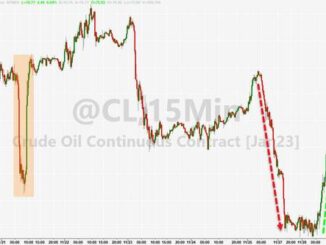
Russia will have to shut in some of its oil production as it will not be able to sell all the volumes displaced from European markets to other regions, with Russian crude production falling and staying depressed for at least the next three years, Standard Chartered said in a note on Thursday.
Russia’s invasion of Ukraine was met with a severe sanctions response from the U.S., the EU, and the UK. The Western allies kicked several Russian banks out of the international SWIFT system, and although direct sanctions on Russia’s oil and gas were not immediately imposed, trade in Russian commodities has become toxic for many global players.
“Because of the banking sanctions we’ve estimated about 70% of Russian crude oil exports can’t be touched. That’s about 3.8 million bpd,” Amrita Sen, Director of Research at Energy Aspects, told CNBC last week.
Earlier this week, the U.S. banned imports of Russian oil, LNG, and coal, which is likely to worsen Russia’s struggles to sell its cargoes as buyers will avoid Russian crude even more than they have been doing so far, traders and analysts say. Although the U.S. ban will directly hit only a small amount of Russian oil exports, the indirect hit could be much higher because a growing number of traders and buyers will be shunning Russian crude due to “self-sanctioning” and reputational risks.
Related: Russia’s Invasion Leaves Global Coal Markets In Turmoil
According to Standard Chartered, “We expect continuing consumer reluctance to buy from Russia and shortages of capital, equipment and technology to continue to depress Russian output over at least the next three years.”
The bank sees Russian oil production dropping by as much as 1.612 million barrels per day annually in 2022 and by a further 217,000 bpd in 2023, with the year-over-year decline peaking at 2.306 million bpd in Q2 2022.
Russia’s struggles to place its oil on the market will result in a large global supply deficit, which can only be realistically filled by those OPEC members with spare capacity, particularly Saudi Arabia and the UAE, Standard Chartered analysts said.
Source: Oilprice.com



